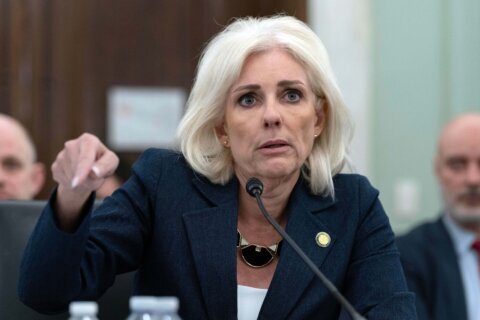As Virginia lawmakers prepare to head back to work on Jan. 10, the public is getting its first look at some of the legislation that will be considered in Richmond during the 2024 legislative session.
On the table are a pair of amendments that would change the state’s constitution, including one that would guarantee a woman’s right to an abortion.
The amendment “provides that every individual has the fundamental right to reproductive freedom and that the right to make and effectuate one’s own decisions about all matters related to one’s pregnancy cannot be denied, burdened, or otherwise infringed upon by the Commonwealth.”
If accepted, the new amendment would prohibit “the Commonwealth from penalizing, prosecuting, or otherwise taking adverse action against an individual for exercising the individual’s right to reproductive freedom or for aiding another individual in the exercise of such right, unless justified by a compelling state interest.”
Changing the constitution is not as simple as passing a bill, however.
Virginia’s state Senate and House would need to approve the amendment during two separate legislative sessions, and a state legislative election would need to be held in between the two sessions.
The amendment would then need approval from Virginia voters in order to take effect.
Since Virginia’s next state legislative election isn’t until 2025, the earliest an amendment could be placed on the ballot for voters would be 2026.
Democratic Sen. Scott Surovell, the Virginia Senate’s new majority leader, has expressed strong interest in moving ahead despite the complicated timeline.
“I don’t think there’s any question: both the House and the Senate are going to hopefully pass resolutions to try to put a woman’s right to make her own health care decisions into the constitution of Virginia, to sort of codify what the law was before the Supreme Court reversed it,” Surovell said, referring to the reversal of Roe v. Wade last year.
The other amendment state lawmakers will consider in 2024 could return the ability to vote to felons.
“A person who has been convicted of a felony shall not be entitled to vote during any period of incarceration for such felony conviction, but upon release from incarceration for that felony conviction and without further action required of him, such person shall be invested with all political rights, including the right to vote,” according to the amendment.
Under the current law in Virginia, felons automatically lose the right to vote indefinitely. The only way they can get the right back is to petition the governor and for the governor to sign off on it.
In the upcoming legislative session, Democrats will hold the narrowest possible majorities in both the Senate and House of Delegates at 21-19 and 51-49, respectively.








